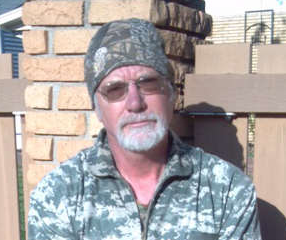
Chronic wasting disease is a debilitating, fatal disease that attacks the central nervous system of whitetail deer, mule deer, moose, caribou and elk, actually resulting in small holes developing in their brains. CWD was first diagnosed in captive animals in Colorado and Wyoming in the late 1960s and 1970s, and was seen in free ranging animals in the early 1980s.
Kansas’s fish and game officials have been testing hunter-harvested Kansas deer since 1996, and during the 2005 firearms season, the first documented case was discovered in a whitetail doe taken near the Cheyenne Co. town of St. Francis, in the northwestern corner of the state. Later that year KDWP staff harvested 50 deer, 29 mule deer and 21 whitetails within a 15-mile radius of where the infected doe was shot. Tissue samples from each deer were collected at a field lab and sent to KSU for analysis, and all 50 dear tested negative for CWD at the time.
Many thousands of both wild and captive mule deer and whitetail deer have been tested for CWD since testing first began in KS in 1996, and the disease continues to spread. Last year, during the 2021 – 2022 deer season, 190 new positive tests were confirmed, bring the total to 738 positive tests for Chronic Wasting Disease in our state, with the number of positive tests growing each year. With the exception of a half-dozen counties, the entire western half of the state has produced deer or elk testing positive for CWD. The disease continues to spread eastward, and as of the end of the 2021-2022 deer season, CWD has been detected in 59 Kansas counties. There is currently no known cure for CWD, and experts advise there is no way of administering a cure if there was one.
CWD appears to target animals older than I year, and it can be several months before outward symptoms become apparent. Animals in advanced stages of the disease will seem listless, may walk in repetitive patterns with their head lowered, will probably exhibit excessive salivation and a blank expression, and will appear to be in very poor overall health. Many infected animals are killed and consumed by predators before humans even seen them. If you witness deer or elk with any of these symptoms, report it to a conservation officer immediately!
Extensive research shows no risk of humans contracting this disease; however, health officials urge common sense, and recommend that contact with CWD infected animals be avoided. Researchers are still uncertain how the disease is transmitted, but cattle and other domestic livestock appear to be naturally resistant.
Common sense should dictate not to consume any part of a known infected animal. Special precautions are also urged for hunters harvesting deer or elk from an area known to have produced an infected animal. Kansas Dept of Wildlife and Parks recommends all meat from these carcasses should be boned-out, and none of the brain, spinal cord tissue, eyes, spleen or lymph nodes should be consumed. The carcass of the infected animal should remain there where it was harvested, buried, if possible, to avoid further spreading the disease. Extra care should also be taken to thoroughly wash and disinfect hands and butchering equipment.
Yes, spread of this disease will hurt Kansas’ deer populations and our deer hunting industry. An even bigger fear, for now, is that people will “throw the baby out with the bath water,” so to speak, and immediately stop hunting deer all across the state, causing deer populations to explode out of control, thus compounding existing problems while creating new ones.
Let’s not overreact; our wildlife officials are hunters, trappers, fishermen and outdoorsmen just like us, so trust them to stay on top of this threat! In the meantime, stay informed by visiting the KDWP website, www.kdwp.state.ks.us. They are very good about keeping this website updated. Oh, and keep Exploring Kansas Outdoors!
Steve Gilliland, Inman, can be contacted by email at stevenrgilliland@gmail.com.






